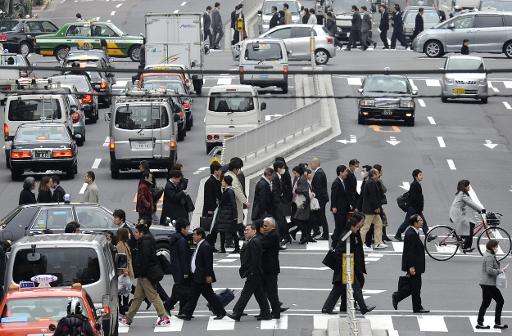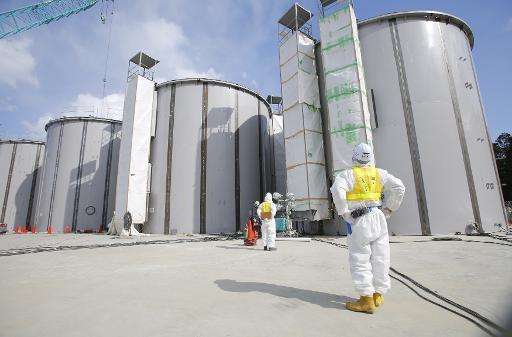Japan to pledge 20% greenhouse gas cut

Japan will promise to cut its greenhouse gas emissions by 20 percent from 2013 levels ahead of a global summit on climate change this year, a report said Thursday, despite uncertainty over post-Fukushima energy policy.
The government will likely announce the new target at the Group of Seven (G7) summit in June in Germany, the leading business daily Nikkei reported, citing unnamed government sources.
In a separate report, Kyodo News said Tokyo will set a target of cutting gas emissions "by at least 20 percent by 2030, from 2005 levels."
Japan is one of the few leading polluters that has not yet declared a target on emission cuts, as the world works towards a new framework for combating climate change, to be finalised at December's COP 21 gathering in Paris.
A total of 33 countries—including the No.2 emitter the United States, the No.3 emitter the European Union, and Russia, ranked fifth—submitted their reduction goals to the UN secretariat by the end of last month.
The US has pledged to reduce greenhouse gas emissions by 26-28 percent over 2005 levels within the next decade, while the EU said it will cut its pollution by 40 percent by 2030 from 1990 levels.
Russia said it could drive down emissions by up to 30 percent compared to 1990 levels, subject to conditions.

In earlier rounds of climate talks, Tokyo pledged it would reduce its greenhouse gas output by 25 percent by 2020 from 1990 levels.
But that target was slashed to a 3.8 percent cut form 2005 levels in the aftermath of the 2011 Fukushima nuclear disaster, which led to idling of the country's entire nuclear stable.
Amid huge public nervousness over atomic power, utilities have reverted to carbon dioxide-spewing fossil fuels to plug the gap left by the switch-off of plants that used to provide more than a quarter of Japan's electricity.
Politically perilous issue
The government and much of industry is keen for reactors to go back online, and several plants are moving towards restarts, possibly this year.
But the issue remains politically perilous and the administration of Prime Minister Shinzo Abe has so far dragged its heels on defining how much of a role nuclear power will play in future generation.
Without knowing the exact energy mix—how much power will come from renewables, nuclear and fossil fuels—setting realistic targets for the reduction of greenhouse gas emissions is all but impossible.
Climate change officials at the country's industry and environment ministries denied the Nikkei and Kyodo reports, saying the target was still under discussion.
But critics were quick to point out that if the reports were correct, they were disappointingly unambitious.
"If the reported target is true, it will be difficult for Japan to maintain negotiating power in international talks," said Masako Konishi of environmental pressure group WWF.
"It's difficult to make the case that this is a 'fair and ambitious' target," she said, adding that the WWF believed Japan could cut emissions by about 50 percent by 2030 on current levels.
© 2015 AFP















